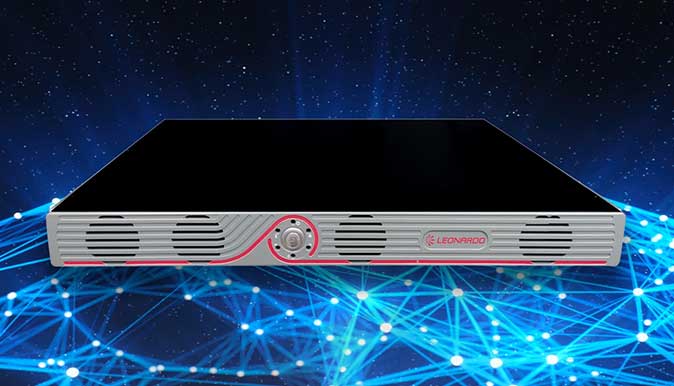Interoperability at the Core
Building Flexible,Scalable Critical Communications Networks In critical communications, interoperability is not just a technical goal—it is the...
(Shortly after being interviewed for our blog, Mr. Fay passed away unexpectedly. It came as a surprise to all of us who knew him. He was one of, if not our biggest and best, advocates, he truly loved the LMR industry and was well respected throughout it. Our condolences go out to the Fay family as well as his family of colleagues at Applied. May he rest in peace.)
As a company that strongly values ongoing research and innovation with regards to our LMR technology, we are always looking to our customers and colleagues for honest feedback on Leonardo's products and services—as well as for their industry insights.
That group also includes authorized resellers we often work closely with, like Bob Fay, CTO, Applied Communications Services Inc. (ACSi). We recently caught up with Bob to talk about ACSi, the LMR industry, and more. Read on.
ACSi is best described as a turnkey integrator focusing on clients that require comprehensive solutions to their communications needs. Some clients fall into typical public safety categories (EMA, EMS, Fire & Police) but most all have mission critical communication requirements such as regional transit authorities, special needs transportation, financial services and such. Though based in the metro-west area outside Boston, we have clients throughout the northeast as well as a couple we take care of nationwide.
I am an advocate of true partnering in which both ACSi and our vendor(s) understand we have a common mission: to understand each client’s unique needs and deliver compelling solutions that address them. True partners understand they will either win or lose based upon their ability to work together in defining, designing, and implementing a solution to their mutual client’s needs. One would think that this concept would be universally understood but experience has proven it isn’t—thus I look for those companies that recognize this common goal and are willing to work together to support it.
In all honesty, negative experiences with NA manufacturers fostered a bit of trepidation suddenly going to Italy for a manufacturer—but the software-defined RBS stations were simply too compelling not to try and it has been one of the best decisions I have made in memorable history. The programmable capabilities of these stations provide both a migration path from analog to digital DMR or P25 providing us with the ability to address the evolving needs of a client, which is so important when one realizes the single biggest constant in life is change. The inherent ability to operate in either multicast, simulcast, or a hybrid scheme of the two has been a problem solver for sure.
Perhaps the most significant thing is the true partnership relationship that has developed between our respective companies. I only wish I could claim the same quality of relationship and support that I enjoy with Leonardo with all my vendors!
Initially, clients look favorably on the robust configurability of the product platform, for it protects their investment by allowing them to meet changing needs or requirements by merely reconfiguration rather than forklift replacements. As they learn the extensive level of system control and operating data that the ECOS-D platform provides, they become even more enamored with the products. Combine these things with the consistent reliability they see and the world-class support that has allowed us to provide features and functions in advance of having been ratified and published as a standard.
The demise of LMR is something that has been forecasted for more years than I can remember, but it has continually failed to materialize and I don’t expect that to change as it simply is not a one-size-fits-all-world—nor do I believe it ever will be. What I do see is an ongoing push in the direction of more converged solutions. This is really something of a natural progression that has been going on for years but increasing in speed with each passing year and evolving end-user needs. The trend I see is toward increased and distributed network intelligence dynamically delivering connectivity and multiple forms of information via whatever resources are available or best suited. I am anxious to deep dive into the architecture, features, and functions of Leonardo’s new Communication Service Platform (CSP) promising the next generation of network integration and management. The CSP appears to hold promise to the kind of unified “system of systems” approach that I and many of my peers believe is required to deliver the services the end-user community desires and needs in the kind of cohesive, manageable manner needed for wide-scale acceptance and use.
Obviously I have no idea how many Leonardo competitors may read this but for those who do, I would strongly suggest they consider modeling their operations to emulate those of Leonardo if they wish to achieve the level of channel and customer respect and loyalty that is accorded Leonardo as they should. In my book Leonardo has established the benchmark I now judge all other vendors by.
A huge thank you to Bob and ASCi for our strong partnership, and as always, for your honest and intelligent feedback.

Building Flexible,Scalable Critical Communications Networks In critical communications, interoperability is not just a technical goal—it is the...

In today's fast-paced world, having a reliable and robust emergency communication system is crucial for public safety and operational efficiency.
We're thrilled to announce that Leonardo's Jim Collum has been invited to join the prestigious EWA Technical Solutions Committee, a testament to his...